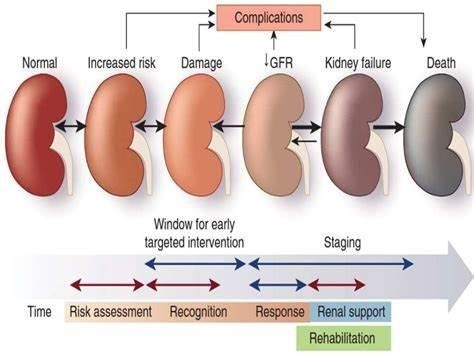Several nurses are elected by their peers to serve on a negotiating committee to recommend new healthcare benefits. After the new benefits plan is developed and approved, which action is most important for the nurses working on this committee to implement?
Announce the new plan at a special employee wellness event.
Determine staff opinion of current healthcare insurance costs.
Survey the nurses to see who wants to keep the old benefits plan.
Be available to all shifts to discuss the changes in health benefits.
The Correct Answer is D
Choice A Reason: Announcing the new plan at a special employee wellness event may be a good way to promote the plan and celebrate the achievement, but it is not the most important action. The nurses working on the committee should first communicate the plan to their colleagues and address any questions or concerns they may have.
Choice B Reason: Determining staff opinion of current healthcare insurance costs may be useful for evaluating the need and feasibility of the new plan, but it is not the most important action. The nurses working on the committee should have done this before developing and approving the new plan, not after.
Choice C Reason: Surveying the nurses to see who wants to keep the old benefits plan may be helpful for assessing the satisfaction and acceptance of the new plan, but it is not the most important action. The nurses working on the committee should have considered the preferences and needs of their colleagues during the development and approval of the new plan, not after.
Choice D Reason: Being available to all shifts to discuss the changes in health benefits is the most important action for the nurses working on the committee to implement, as it shows respect and transparency for their colleagues, and fosters a collaborative and supportive work environment. The nurses working on the committee should explain the rationale and benefits of the new plan, and provide feedback and guidance to their colleagues.
Nursing Test Bank
Naxlex Comprehensive Predictor Exams
Related Questions
Correct Answer is B
Explanation
A) This client has a mild fever, which may indicate an infection or inflammation. This is a potential complication of enteral feedings, but it is not the most urgent situation. The nurse should monitor the client's vital signs, assess the feeding tube site, and notify the provider if the fever persists or worsens.
B) This client has signs of uremic encephalopathy, which is a life-threatening condition caused by the accumulation of toxins in the brain due to impaired renal function. The nurse should intervene immediately to prevent further
neurological damage and possible coma or death. The nurse should assess the client's level of consciousness, check the blood pressure and urine output, and prepare to administer dialysis or other treatments as ordered by the provider.
C) This client has heat stroke, which is a serious condition that can lead to dehydration, electrolyte imbalance, and organ damage. However, the client is receiving a normal saline IV fluid bolus, which is an appropriate intervention to restore fluid volume and correct sodium levels. The nurse should continue to monitor the client's vital signs, skin
temperature, and urine output, and watch for signs of fluid overload or cerebral edema.
D) This client has hyperemesis gravidarum, which is a severe form of nausea and vomiting during pregnancy that can lead to dehydration, malnutrition, and electrolyte imbalance. However, the client is receiving an infusion of Ringer's Lactate, which is an isotonic solution that can replenish fluid and electrolyte losses. The nurse should continue to monitor the client's vital signs, weight, and intake and output, and administer antiemetics or other medications as ordered by the provider.

Correct Answer is B
Explanation
Choice A Reason: This is not the best action because it is a medication error that can be corrected and prevented by following the rights of medication administration. The nurse manager should counsel the staff nurse and provide education on safe medication practices.
Choice B Reason: This is the best action because it is a serious breach of professional ethics and standards. The nurse manager should report the staff nurse to the PRC for falsifying documentation and compromising client care.
Choice C Reason: This is not the best action because it is a mistake that can be rectified by removing the diet tray and notifying the healthcare provider. The nurse manager should reprimand the staff nurse and review the policy on NPO status.
Choice D Reason: This is not the best action because it is a minor issue that can be resolved by communicating with the charge nurse and other staff members. The nurse manager should remind the staff nurse of the importance of teamwork and collaboration.
Whether you are a student looking to ace your exams or a practicing nurse seeking to enhance your expertise , our nursing education contents will empower you with the confidence and competence to make a difference in the lives of patients and become a respected leader in the healthcare field.
Visit Naxlex, invest in your future and unlock endless possibilities with our unparalleled nursing education contents today
Report Wrong Answer on the Current Question
Do you disagree with the answer? If yes, what is your expected answer? Explain.
Kindly be descriptive with the issue you are facing.
